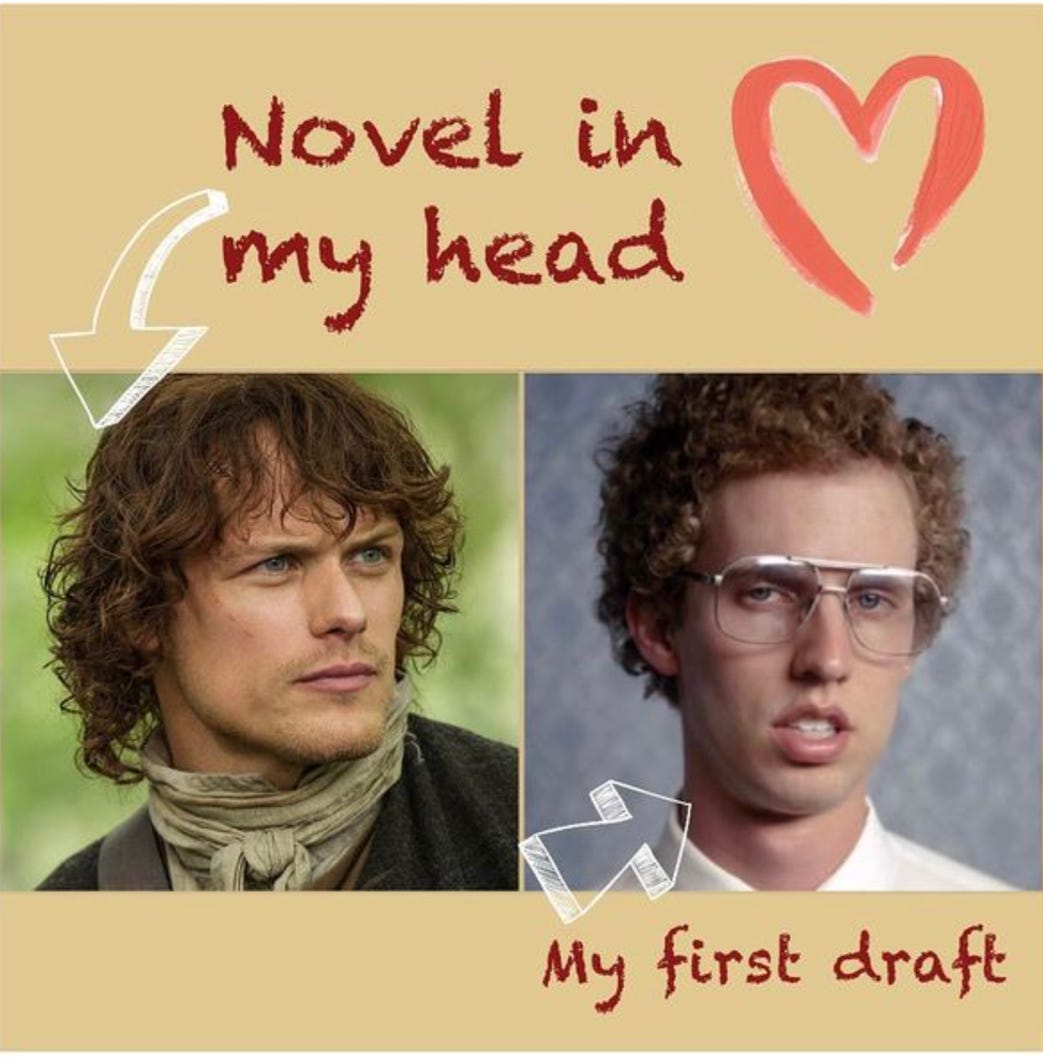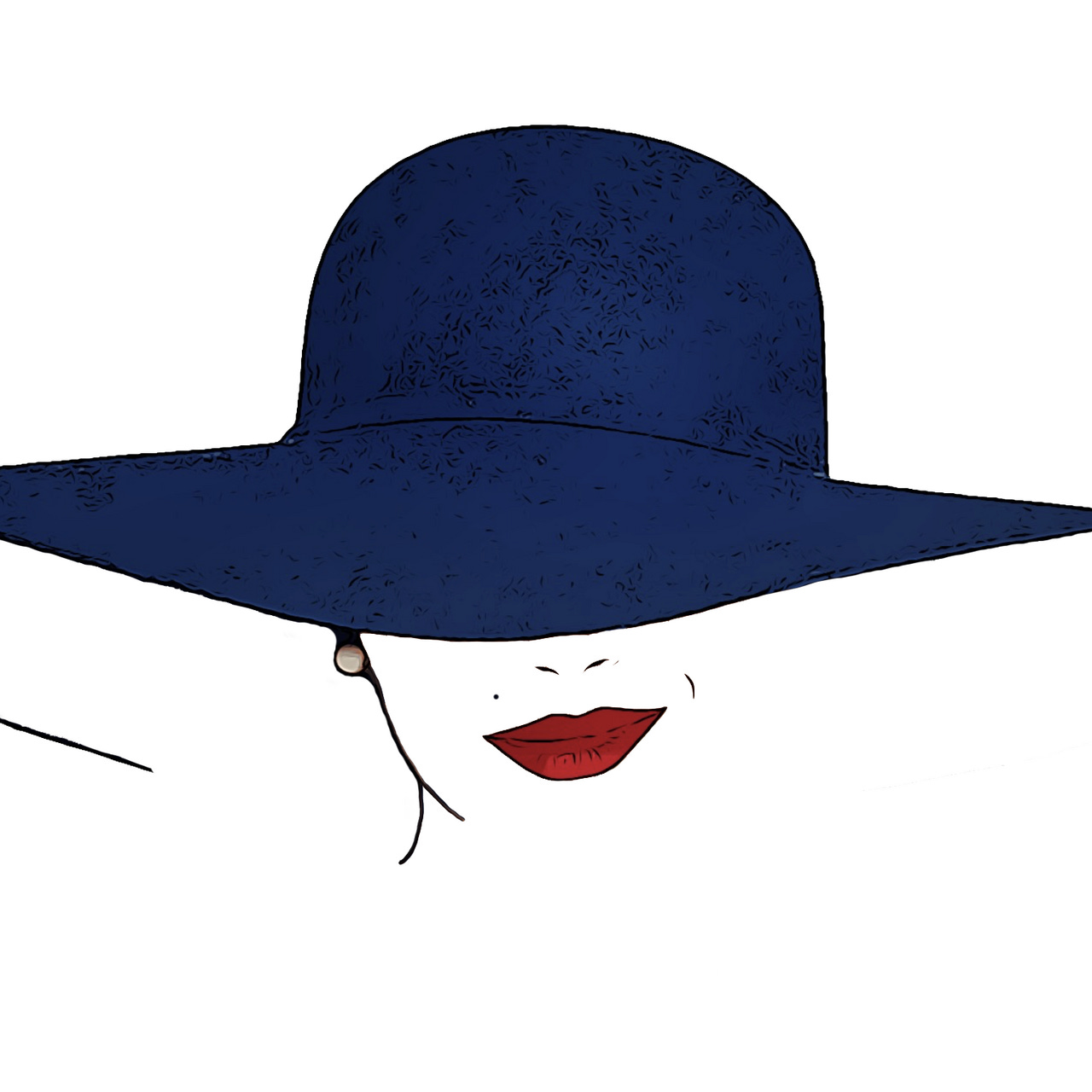Tell Me Your Ways...with Olivia Jackson
Soon to be your favorite romance writer! Debut novel coming soon!
I met Olivia in The Shit No One Tells You About Writing Deep Dive Series—noticing a trend? I swear I have other writer friends, but seriously taking the workshop easily tripled it. Olivia and I were in lots of break out rooms together and I immediately fell in love with her wit and her honesty. Also if you are on Instagram she plays a really fun game where she posts a picture of the movie she’s watching and gives a pop quiz. I kill at that game! Unless for some reason she’s not watching a romantic comedy and/or adventure movie.
Are you a plotter or a pantser? Why do you find this the best way for you to write?
I’m a plantser. I create a brief outline of what should happen in the book before starting my first draft. For every book I have a clear vision for the beginning and the end, and many scenes I know should go into the novel, so I throw them onto the outline in the order I think they might go (later I move them around).
The outline made of a few (single-spaced) pages works best for me because if I try to write out every detail of the plot, then I might as well start writing my draft and call myself a pantser. :)
What does your drafting process look like? Do you write scenes in order?
Once I create the outline and main characters’ portfolios, I write my first sh*tty draft, which, god forbid, no one but me should ever see.
I draft (and do a few revisions) in Scrivener using the Save the Cat template. I don’t draft in chapters but in scenes. This way, my brain doesn’t hang up on ‘what is the best way to end this chapter’ because that could become a long, painful hour.
Most of the time, I write in linear order, but some days, composing the next scene is as painful as fighting a raccoon on crack, so I jump to a scene that happens many chapters later in the book because it’s the scene that I know I can draft at the moment (hence, Scrivener is an outstanding tool because you can easily drag and drop scenes anywhere in the plot). I do not focus on the word count goal because it would add extra anxiety to my life.
The first draft consists mainly of dialogue, short descriptions of settings, and millions of [TK ] reminders like [TK describe this place] [TK add emotions here] [TK google this] [TK figure out what he would say but make it funny] [TK sex scene goes here] and so on. Pages are full of echo words, grammatical errors, and weak sentences, but it’s okay because everything is fixed in revisions.
For writers who love Save the Cat book, you can find the Scrivener template here: https://www.jenterpstra.com/blog/save-the-cat-plotting-scrivener-template
(I created this meme (or whatever it’s called) because pictures can speak a thousand words J, plus who doesn’t want another glimpse at Jamie Fraser ;) )
Please walk us through a little of what your revision process looks like?
English is my second language, and I also have dyslexia, so my revision process is lengthy. I draft fast, but when it comes to untangling what I wrote, oof, that’s quite a journey.
First round: I read my draft, removing unnecessary rubbish and leaving inline notes on what I should add to the plot during the next edit round. If I have an immediate need to add what’s missing, I don’t stop myself from writing it. It could be just several lines or a few pages.
Second round (the longest): involves expanding the scenes, adding descriptions, and replacing all [TK] notes, except [TK sex scene goes here].
Third round: on line editing, not fixing grammar but making sentence structure better, punchier, ensuring words are strong and fitting for the scene, killing most of the echo words and phrases, deleting filter or garbage words, and so on.
Fourth round: I write spicy scenes. This round could take up an entire week because these scenes are essential. I write them in layers: mechanics, emotions, senses, and other fluff that should be present during these moments. Last, I do on line editing.
Fifth round: I *try* to correct grammar, listen to my book as an audiobook, fix what I notice is wrong, and then I share my novel with my trusted CPs, Christine Kelly (@christinekellywrites) and Gina Banks (@ginabanksbooks), who I met through Bianca’s Beta Reader Match up (https://www.biancamarais.com/beta-reader-match-up.html)
Sixth round: I revise the novel per my CP’s comments and (deep breath) send it to my fabulous agent, Helen Lane.
Seventh round: once I get Helen’s editorial letter, I tear apart my novel and start from round one. :)
Why do you wait until the fourth round to write the sexy scenes? Just curious.
Two reasons. First, by this point, I'm happy with the plot line, and I know my characters well enough to write sex scenes that fit their personality and add to their relationship development. Second, sex is such an essential moment in romance novels that my brain must focus only on that and nothing else in the book.
How do you know when your story is done?
Um, is it ever done? :) I guess when I reread my novel for the nth time, and my brain can no longer instantly come up with “oh, what if …” then it’s done.
How many beta readers do you typically have for a project? Does anyone read all the versions?
Before I signed with my agent I used to ask five or six beta readers to read my book; now, I might ask for maybe three.
What are you currently working on now?
While waiting on my editor’s Digging Dr. Jones editorial letter, I’m entirely rewriting my second book Hunter’s Treasure per Helen’s notes.
Do you have a favorite book on the craft of writing?
Books:
“Save the Cat writes a novel” by Jessica Brody
“Self-Editing for Fiction Writers” by Renni Browne
“Creating Character Arcs” by K.M. Weiland
“Romancing the Beat: Story Structure for Romance Novels” by Gwen Hayes
All “How to Write Fiction: Busy Writer’s Guides” books by Marcy Kennedy
“Character Expressions” by Dahlia Evans
Some podcasts/blogs/ webinars:
The Shit No One Tells You About Writing (because they have so much expert advice on the first pages)
I would also suggest taking 10-week Deep Dive Series. Not only can you learn more about the craft on writing and publishing world, but you can also walk away with new friends.
Anything else you’d like to share? Where can we find you?
When someone asks me, “How can I become a published author?” my answer starts with the words, “To publish a book traditionally, you need a polished manuscript, a good query, persistence, and a dodo bird feather.” But I should also add that you need a great supportive system, which means you must find strong critique partners and author friends. Writing is solitary work, but your journey shouldn’t be done alone. Without my support system, I wouldn’t be where I am today. While in query trenches, countless times, I thought I was fooling myself with the idea that I could become a published author. Yet, in May, I have signed a two-book deal with a Big Five publisher (I can’t share who it is because it wasn’t announced yet). The point of my blabbering is if I can do it, then anyone who has “Never give up! Never surrender!” attitude can do it too.
Thank you for reading!
You can connect with me on:
Instagram: @oliviajacksonbooks







